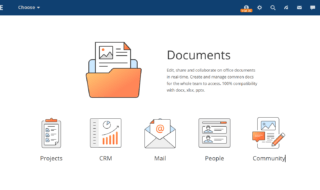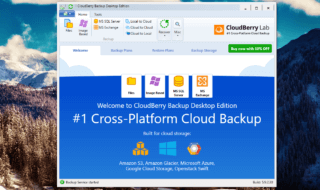Nowadays, more organizations than ever work with the cloud. According to WebTribunal, 94% of enterprises already use a cloud service, which is a significant number. This statistic perfectly encapsulates how prevalent cloud technology has become in today’s world and how big of a role it plays in modern-day business.
However, even such an advanced solution as the cloud is not free of security challenges. Hackers and cyber-criminals are constantly probing for vulnerabilities in cloud systems, looking for ways to get their hands on precious data that businesses store there. Besides hijacking accounts, they often take advantage of the cloud’s link-based sharing option or the accessibility of this infrastructure to gain unauthorized access to an organization’s cloud-based resources.
If you want to invest in the HPC cloud or some other cloud solution, it might be wise to learn more about the potential threats and challenges this technology comes with. Here are some of the most significant risks entrepreneurs should be aware of:
Contents
Inadequate Protection of Cloud-Based Data

This is one of the most common risks associated with the cloud. It often happens because businesses do not encrypt their data when storing it in the cloud or use weak encryption methods that hackers can easily crack. It is a significant problem that cyber-criminals can easily exploit.
Besides, some entrepreneurs believe that their data is well-protected as long as they use a reputable cloud service provider. However, this is not always the case since even big companies like Amazon have experienced data breaches in the past. If you’re not careful, your data might be exposed to various security threats — no matter what kind of business you run or how big it is.
Lack of Awareness About Cloud Security Among Employees
This is another significant security challenge businesses face when using the cloud. Namely, employees often lack awareness when it comes to cloud security, which increases the likelihood of them making mistakes that can jeopardize the safety of an organization’s data. For instance, they might use weak passwords or share them with others, click on malicious links, or open phishing emails.
It’s no secret that employees are not always the most responsible people, which is why businesses should take extra steps to ensure that their workers understand how to use cloud-based applications and services.
Although most cloud solutions come with extensive security features, they can be breached if someone doesn’t know how to use them properly or neglects to set up a correct security configuration. In fact, it is a common reason behind cloud security breaches – employees not setting up the system correctly. As a result, hackers gain unauthorized access to valuable data and use it for their own purposes.
The same goes for any other cloud-based solution you might want to invest in – make sure your employees are aware of the importance of cloud security to avoid possible data breaches.
Insider Threats
A cloud is an excellent option for many businesses, especially those that are strapped for cash and can’t afford to invest in their own infrastructure. Additionally, cloud users can quickly scale up or down their operations depending on the current situation, which has its benefits as well.
However, there’s a catch here. While the cloud can help you improve your business processes, it can also be manipulated by insiders who want to steal sensitive data from your company.
The cloud often poses a threat from within an organization. Employees might misuse their privileges and access sensitive data stored in the cloud without authorization. They might also share this data with unauthorized individuals or delete it altogether. Moreover, disgruntled employees might intentionally sabotage an organization’s cloud infrastructure or leak confidential information to the public.
Compliance Issues
The cloud is not a panacea for all IT-related problems, and it comes with its own set of risks. For example, depending on the industry an organization belongs to, it might be subject to certain compliance regulations (e.g., HIPAA, PCI DSS). It means that the organization has to take specific measures to protect its data and ensure that it is stored and processed in accordance with these regulations. However, this can be quite challenging when using the cloud since the organization does not have full control over its data.
As a result, you need to ensure that the cloud services you sign up for meet all the compliance requirements to which your organization is subject. The more you rely on the cloud, the more likely it is that a security breach will occur and put your business at risk of being fined or subjected to other financial penalties.
Vulnerabilities in Cloud Applications and Services
Cloud applications and services are also vulnerable to cyber-attacks. Hackers might exploit vulnerabilities in these applications to gain access to an organization’s data or even take over its entire cloud infrastructure.
Cloud services and applications are usually susceptible to the same or similar vulnerabilities as on-premises software. But in the cloud, because of the sharing option, these vulnerabilities can be exposed to other users and impact a significantly larger number of individuals than typically occurs with local applications.
In addition, penetration testers have an easier time breaching cloud applications since they do not have to deal with firewalls, intrusion prevention systems, or other advanced security solutions.
Therefore, businesses need to keep their cloud applications and services up-to-date and patch any vulnerabilities as soon as they are discovered.
Conclusion
The cloud is here to stay, and it’s hard to imagine today’s business world without it. It can be a great addition to the arsenal of any startup or small business that is looking for faster processing power and considerable storage space.
However, there are always risks that entrepreneurs should be aware of. This article has discussed some of the most common cloud security threats and risks that you need to be on the lookout for.
It is vital to keep track of all changes in the legislation, monitor all potential threats, and implement an effective security strategy that will protect you from various cyber threats. Doing so can help you keep your business safe for many years to come.



